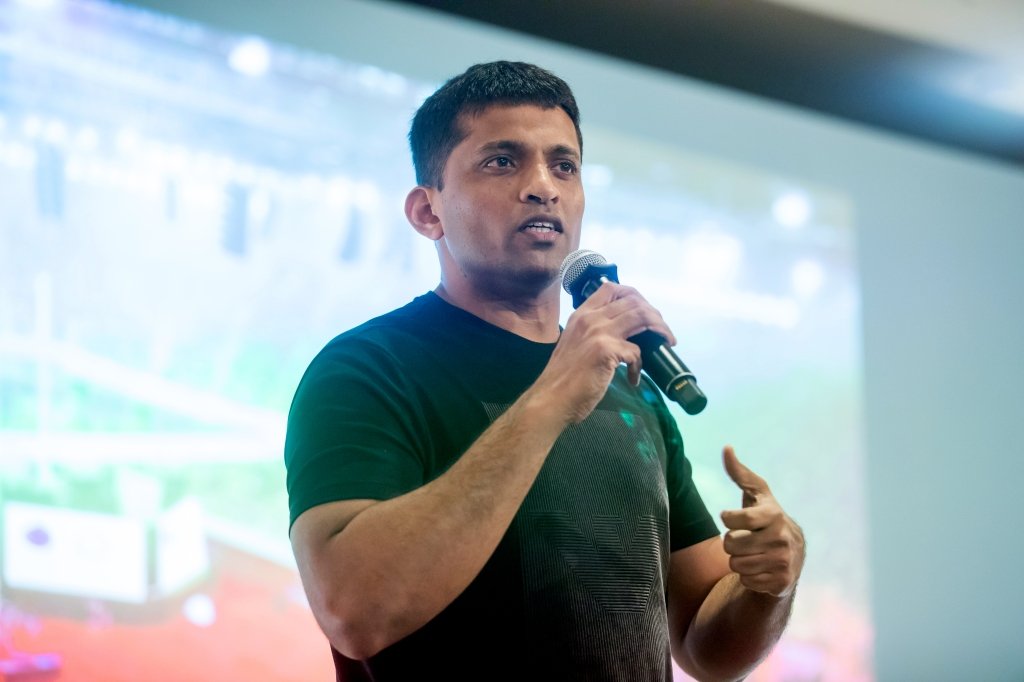Image credits: Paul Yeung/Bloomberg/Getty Images
On Wednesday, Byjus presented three transformer models intended to improve the quality of its services and simplify the learning and personalization experience for its students while the edtech giant is betting heavily on artificial intelligence to transform many aspects of its business.
Badri, a predictive AI model, is designed to identify when students may begin to falter in understanding specific concepts. This model proactively offers recommendations to address any identified knowledge gaps, thus supporting continuous learning.
MathGPT is another specialized template that can solve any math problem by guiding students using understandable analogies and visual aids. The third model, TeacherGPT, works as an AI-powered assistant, providing personalized guidance to students and also grading their answers.
Incorporating student interests to make learning more engaging, the Byjus AI model displays an advanced ability to contextualize instruction. For example, for a cricket-loving student, the AI model can adjust its teaching strategy to use cricket analogies to clarify complex concepts.
India’s most valuable startup said its transformer models that are part of the Byjus Wiz suite have been meticulously trained on the billion touchpoints of Byjus’ student base. The models, which are approximately 87 percent accurate, have been carefully calibrated to ensure they operate within the constraints of their respective curriculum, said Dev Roy, chief innovation and learning officer at Byjus, in an interview with TechCrunch.
Byjus, which also uses ChatGPT to facilitate content generation, has optimized the models to optimize costs and establish barriers, he said.
Transformers will touch nearly every aspect of a student’s journey on Byjus, he said. The platform has implemented Badri throughout the recruitment service to continue to evaluate a student’s learning based on their consumption habits. Each student will receive recommendations and tests that are uniquely suited to them, she said.
Roy demoed how MathGPT used data from GeoAlgebra, a startup the edtech firm acquired in late 2021, to solve equations and offer visual aids. He said that every edtech service offered by Byjus will leverage artificial intelligence in the coming quarters.
The company also uses AI internally to drive efficiencies across many of its verticals, Byjus co-founder Divya Gokulnath said in an interview. One such area is reviewing the quality of a class whether the teacher used the most effective analogies to teach a concept.
But Gokulnath said Byjus does not intend to use these AI suites, which he has been building in-house for over a year and a half, to weed out moderators, content creators and teachers.
Byjus is confident that the development and implementation of AI models will positively impact many aspects of his business, including bottom line, Gokulnath said. Executives emphasized that students’ exposure to these AI models will yield substantial and consequential benefits, significantly contributing to their educational progress.
The startup is also working on its own large language models, he confirmed.
The wave of generative AI services like OpenAI’s ChatGPT and Google’s Bard are hitting the edtech industry with considerable force, raising the stakes for survival. This year, shares of Chegg, an edtech player, have tumbled more than 60%, a fall partially driven by the company’s admission that ChatGPT, in particular, is dealing a major blow to its business model.
Roy warned, after being prodded numerous times, that many edtech services that don’t leverage AI to augment their services could face potential obsolescence.
#Edtech #giant #Byjus #launches #boost #transformer #models



